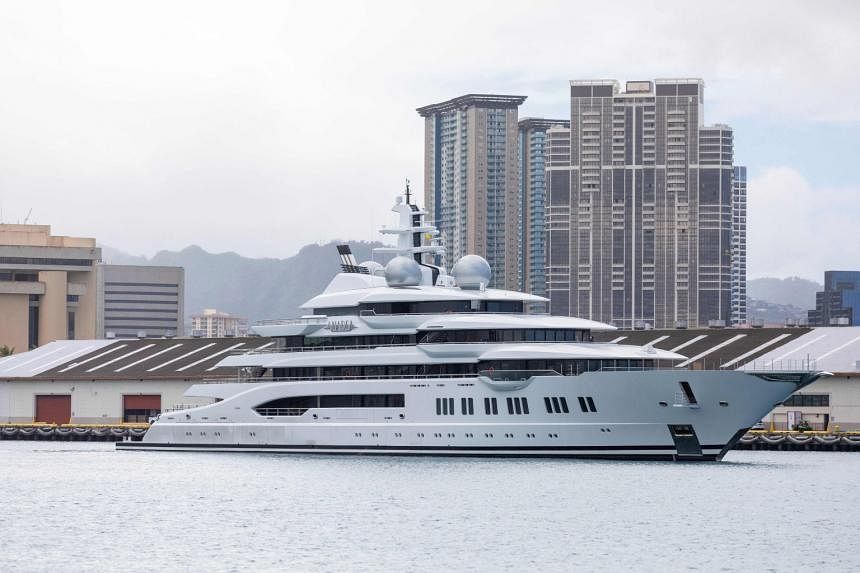WASHINGTON (BLOOMBERG) - When the US$325 million (S$452 million) Amadea superyacht that's been linked to Russian billionaire Suleiman Kerimov sailed into Fiji in April, the captain may have figured he had found a safe haven.
The laid-back South Pacific island nation had not joined in a global push to impose sanctions on Russia and many of President Vladimir Putin's wealthy supporters, and had just a few weeks before abstained from a United Nations resolution supporting Ukraine's territorial integrity.
Yet a week after the Amadea arrived, Fiji authorities detained the luxurious yacht at the request of the United States government, which argued that Mr Kerimov, who has been sanctioned for his ties to Mr Putin, was the true owner of the ship.
The US eventually won a series of legal challenges and seized the vessel, sailing it to Honolulu last week.
The costly episode shows how Russian tycoons are running out of places to park their floating palaces, four months after their country's invasion of Ukraine.
The US and Europe are going after their superyachts, villas and other assets because of their ties to Mr Putin. Already, more than a dozen boats worth more than US$2.25 billion have been seized by the US, European Union nations and willing allies, such as Fiji.
The US has formed a task force dubbed KleptoCapture to pursue the assets of Russian oligarchs. The unit, along with the Federal Bureau of Investigation, the US Marshals Service and Coast Guard, sent agents to Fiji to pursue the Amadea.
In Europe, Germany, Italy, Spain and other governments have seized ultra-luxurious vessels, with the biggest prize so far Russian billionaire Alisher Usmanov's Dilbar, which is valued at as much as US$750 million.
After the Amadea was first seized, US Deputy Attorney-General Lisa Monaco issued a warning to Russian tycoons, saying the Justice Department "had its eyes on every yacht purchased with dirty money".
"This seizure should tell every corrupt Russian oligarch that they cannot hide - not even in the remotest part of the world," she said.
Fearful of having their yachts seized, owners have sent them to a small number of locales still considered friendly, allowing the vessels to dock or hang around unbothered, including Dubai in the United Arab Emirates, Turkey and the Maldives, according to Spire Global, a data and analytics firm that uses satellite technology to track maritime activity.
Still, it can be challenging to predict how countries might react to a Russian megayacht in their waters, such as the case of the Amadea, or how governments might change their approach to sanctions with political pressure or a change in administration.
As the war in Ukraine drags on, more so-called neutral countries that have not imposed sanctions may be drafted in to help with seizures, said Ms Elizabeth Mendenhall, an assistant professor of marine affairs and political science at the University of Rhode Island.
"Maritime law is not a key factor in the seizures," she said. "It's more about the relationship between the US or (Britain) and the country they want to get help from. They can use carrots and sticks related to other issues to get states to cooperate," she said.

